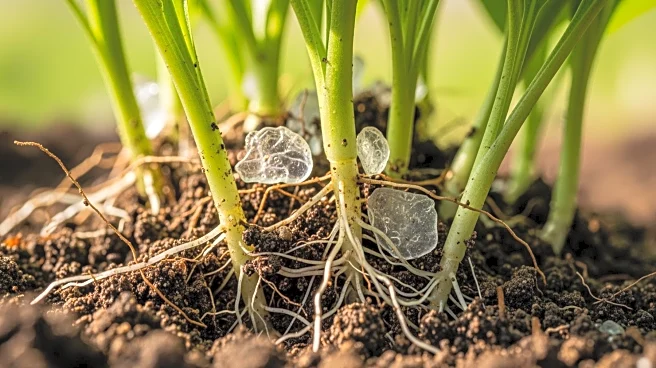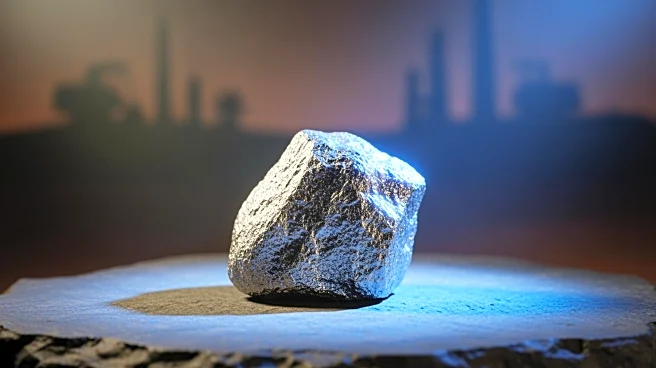What's Happening?
A study highlights the potential of microbial remediation to address microplastic pollution in soil. Microbes can break down microplastics into less harmful substances, reducing their concentration in the environment.
The study identifies fungi and bacteria capable of degrading microplastics and discusses the mechanisms involved, such as enzymatic breakdown and biofilm formation.
Why It's Important?
Microplastic pollution poses significant ecological and agronomic risks, affecting soil health and plant growth. Microbial remediation offers an environmentally friendly solution, potentially improving soil quality and reducing pollution. This approach could have long-term benefits for agriculture and ecosystem stability.
Beyond the Headlines
The study emphasizes the need for further research to overcome challenges in microbial remediation, such as scalability and monitoring. It also highlights the importance of public awareness and regulatory frameworks to support the implementation of microbial-based solutions for environmental issues.










